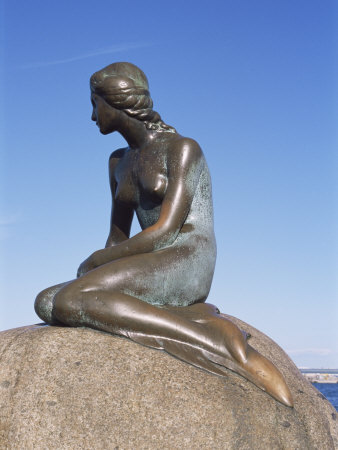A little known day of celebration to most ‘Westerners’, May 24,
the Day of Saints Cyril and Methodius, is a huge festival for those in Eastern Europe: a day to celebrate cultural heritage. The peoples of Russia, Slovakia, Macedonia, Serbia, Czech Republic, Hungary, etc. venerate Saints Cyril and Methodius who created a Slavonic alphabet, translating the Bible and other writings from Greek and Latin into the language of the Slavic peoples. The invention of this ‘Cyrillic Alphabet’ is seen as the keystone that gave the Slavs access to written culture, vast sources of knowledge, and ultimately allowed them cultural independence from Muslim (as part of the Turkish Empire) and other religious or social invasions.
Read more.. »
Today is Europe Day, a day to celebrate peace and unity in Europe! Earlier in the week, May 5thwas a day designated to the Council of Europe, whereas today’s date designates the European Union.

Unity in Diversity - the EU Flag
Europe Day is simply an observance day and it’s not a public holiday. It is a political event, nevertheless, and the day attempts to teach people more about the ways in which the EU works and to speak in support of European integration.
Read more.. »
Today’s date marks the birthday of the Danish storyteller, Hans Christian Andersen. International Board on Books for Young People, a non-profit Swiss organization trying to get more and more young people to read, has declared this date the International Children’s Book Day.

Andersen's Little Mermaid in Copenhagen harbor
The day was first celebrated in 1967, and it annually includes writing competitions, book awards, and various events bringing authors and young readers together.
Read more.. »
Whether you are in Bulgaria or not, why not do as Bulgarians
do – give a “Marteniza” with a wish for good health to each of your family, friends and colleagues. The first of March has been a special holiday for Bulgarians since old times. On this day they begin exchanging white and red tassels. They’re called Martenitzy, after the month of March (Mart in Bulgarian). During this month, Bulgarians wish friends and relatives “good health” through the symbolic red and white colours. According to folklore, a healthy and beautiful Bulgarian woman is always described with white skin and red cheeks.
This is a wonderful gesture of love and good will! It’ll bring you good luck as well!
guest |
February 22nd, 2012
The Christian celebration, Lent, begins today. Lent is forty days of reflection and preparation before Easter. It begins with Ash Wednesday.
Lent is forty days of reflection and preparation before Easter. It begins with Ash Wednesday.
Ash Wednesday is a day to clean one’s soul before Lent. Lent is traditionally a season to fast from food and festivities, and to reflect upon the events that led to Jesus’ crucifixion. Therefore, on Ash Wednesday, some Roman Catholic and Anglican churches have special services where worshippers are marked with ashes as a symbol of the sorrow of sin. Ash symbolises the fact that death comes to everyone, and that everyone should feel sad for their sins. In addition, ash symbolises the total finality of how, in the bible, God creates Adam from dust and how Adam returns to dust after his death. Hence, the saying, “ashes to ashes, dust to dust.”
During Lent the colour purple is very important. Purple symbolises both the morning of Jesus’ crucifixion and the royalty and sovereignty of his resurrection.
Lent is an old English word that means ‘to lengthen.’ Lent got this name for being a time of spring when days lengthen.
After Lent follows Easter, which is one of the most important and most celebrated Christian festivals.
Other celebrations in February:
Waitangi Day
Independence Days in February
St. Valentine’s Day
Red Hand Day
National Foundation Day: Japan
Setsubun: Japan
For us in the West, Valentine’s Day is the day that celebrates love. 
St. Valentine has become the patron saint of lovers and on this day we traditionally exchange messages of love, send poems and simple gifts such as chocolates and flowers to our beloved. Traditionally, these are sent anonomously – ‘From Your Valentine’ – which is thought to have come from the farewell note sent from St. Valentine to his gaoler’s daughter just before he was put to death. In the United States, Miss Esther Howland is given credit for sending the first valentine cards. Commercial valentines were introduced in the 1800’s and now the date is very commercialised. The colour Red, Roses and Hearts are the symbols tradtionally associated with this day. Read below for the full history of St. Valentine’s Day.
Read more.. »
guest |
February 8th, 2012
Nirvana Day (also known as Parinirvana Day) is a Mahayana Buddhist day that celebrates the death of the Buddha, or in other words, the day the Buddha finally reached Nirvana at the age of 80. Some celebrate this day on the 8th and others on the 15th of February. So, what is Nirvana? The mental state of Nirvana symbolises the loss of all suffering and want, and freedom from the pain of physical existence. The word its self means ‘to extinguish.’ An enlightened monk, Thich Nhat Hanh, explains…
is a Mahayana Buddhist day that celebrates the death of the Buddha, or in other words, the day the Buddha finally reached Nirvana at the age of 80. Some celebrate this day on the 8th and others on the 15th of February. So, what is Nirvana? The mental state of Nirvana symbolises the loss of all suffering and want, and freedom from the pain of physical existence. The word its self means ‘to extinguish.’ An enlightened monk, Thich Nhat Hanh, explains…
Read more.. »
Cross-cultural differences abound in all walks of life. This summer I 
was invited by one of my French friends to her wedding in France. She was getting married to a mutual friend who was German. The city hall and church wedding ceremonies were held in both languages so that all guests could enjoy the wedding. After that the real differences began to show…
Read more.. »
I expect some interesting photos, experiences and cross-cultural 
insights while following the Journey On Two Wheels to Istanbul on the blog One Hell Of A Ride. You might want to join me virtually on this trip. Our intrepid motorcyclist comments on Day 2: After some riding across Georgian towns with a lot of Armenian markings, captions and labels, I arrived at Posof border crossing [with Turkey]. Huge Turkish flags, everyone acted extremely professional and there was this feeling after Georgia of somehow entering Europe…
Read more.. »
The British often say the only trouble with France is it’s full of French people!
But, it’s not only the British who have trouble with the French it seems. There is a condition called “Paris Syndrome” which is a type of Culture Shock especially experienced by the Japanese when visiting Paris – born out of unmet expectations of an idealised, romantic view of Paris and the reality of their experiences and encounters with the ‘rude’ French.
Read more.. »






 Lent is forty days of reflection and preparation before Easter. It begins with Ash Wednesday.
Lent is forty days of reflection and preparation before Easter. It begins with Ash Wednesday.
 is a Mahayana Buddhist day that celebrates the death of the Buddha, or in other words, the day the Buddha finally reached Nirvana at the age of 80. Some celebrate this day on the 8th and others on the 15th of February. So, what is Nirvana? The mental state of Nirvana symbolises the loss of all suffering and want, and freedom from the pain of physical existence. The word its self means ‘to extinguish.’ An enlightened monk,
is a Mahayana Buddhist day that celebrates the death of the Buddha, or in other words, the day the Buddha finally reached Nirvana at the age of 80. Some celebrate this day on the 8th and others on the 15th of February. So, what is Nirvana? The mental state of Nirvana symbolises the loss of all suffering and want, and freedom from the pain of physical existence. The word its self means ‘to extinguish.’ An enlightened monk, 


 Hello, I'm Deborah Swallow and, for the last fifteen years, I've worked in over thirty countries addressing the complexities of people working internationally across multiple cultures, so individuals and organisations alike can gain an authentic competitive edge and win in international markets.
Hello, I'm Deborah Swallow and, for the last fifteen years, I've worked in over thirty countries addressing the complexities of people working internationally across multiple cultures, so individuals and organisations alike can gain an authentic competitive edge and win in international markets. 